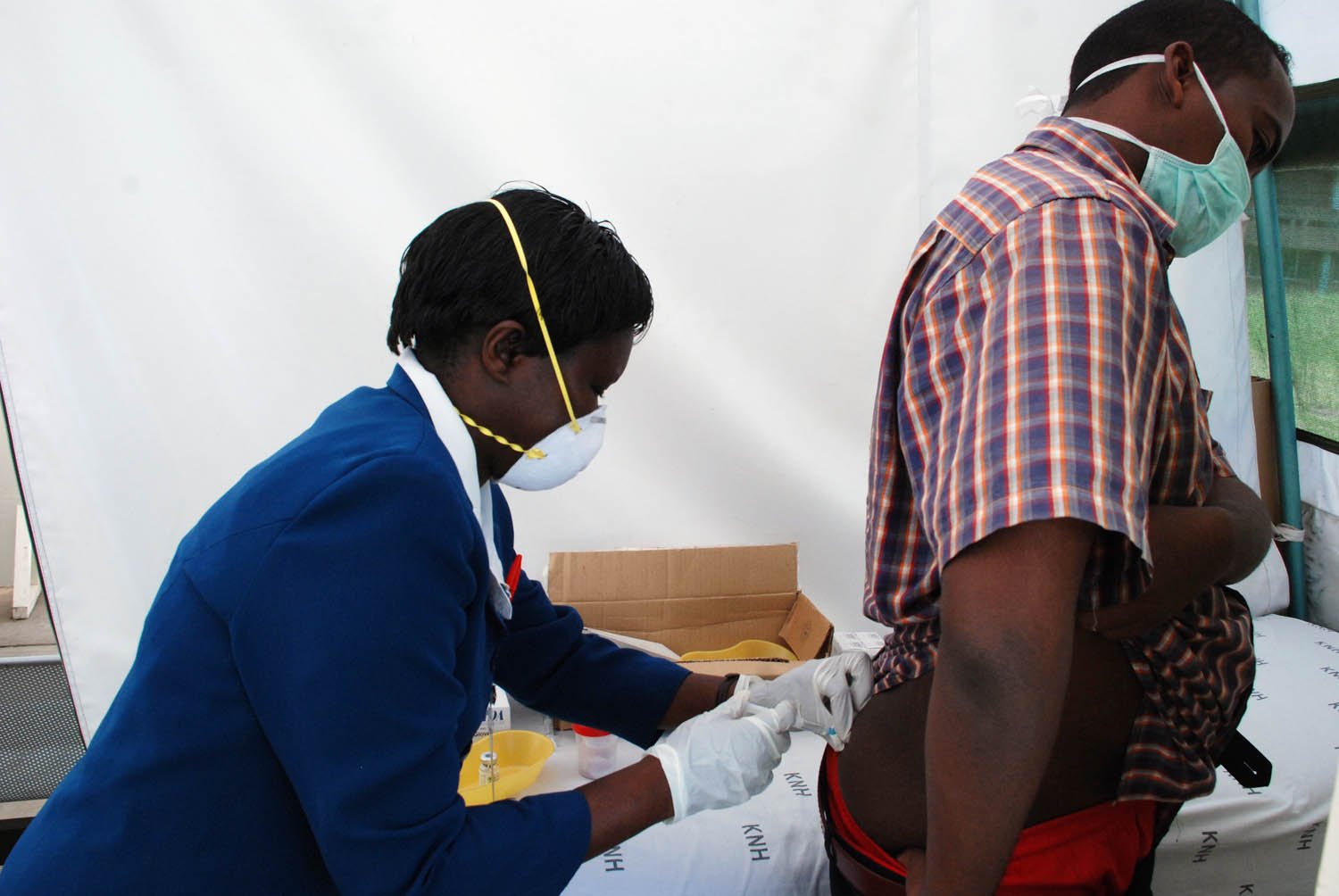"This test will be very important for our country and other developing countries fighting TB epidemics; its speed and improved sensitivity will help us pick up far more cases and begin treatment earlier," said Joseph Sitienei, head of Kenya's National TB and Leprosy Control Programme.
Described as "revolutionary" by WHO, the accurate, easy-to-use test can diagnose TB in about 100 minutes, compared with current tests that can take up to three months. Developed by the Foundation for Innovative New Diagnostics (FIND), a non-profit organization based in Switzerland, the test is also able to detect drug-resistant forms of tuberculosis and TB complicated by HIV infection.
According to WHO, wide use of the test could result in a three-fold increase in the diagnosis of patients with drug-resistant TB and a 100 percent rise in the number of HIV-associated TB cases diagnosed in high-burden HIV and TB areas.
| More on TB | |
Sitienei noted that while treatment was generally available for people diagnosed with TB in Kenya, there were likely to be challenges in rolling out the new test.
"We need to ensure that we have the infrastructure on the ground - especially in rural areas - to take advantage of the test's availability," he said. "We also need to train staff to be conversant in its use. There is a need to prepare the ground."
kr/mw
This article was produced by IRIN News while it was part of the United Nations Office for the Coordination of Humanitarian Affairs. Please send queries on copyright or liability to the UN. For more information: https://shop.un.org/rights-permissions





